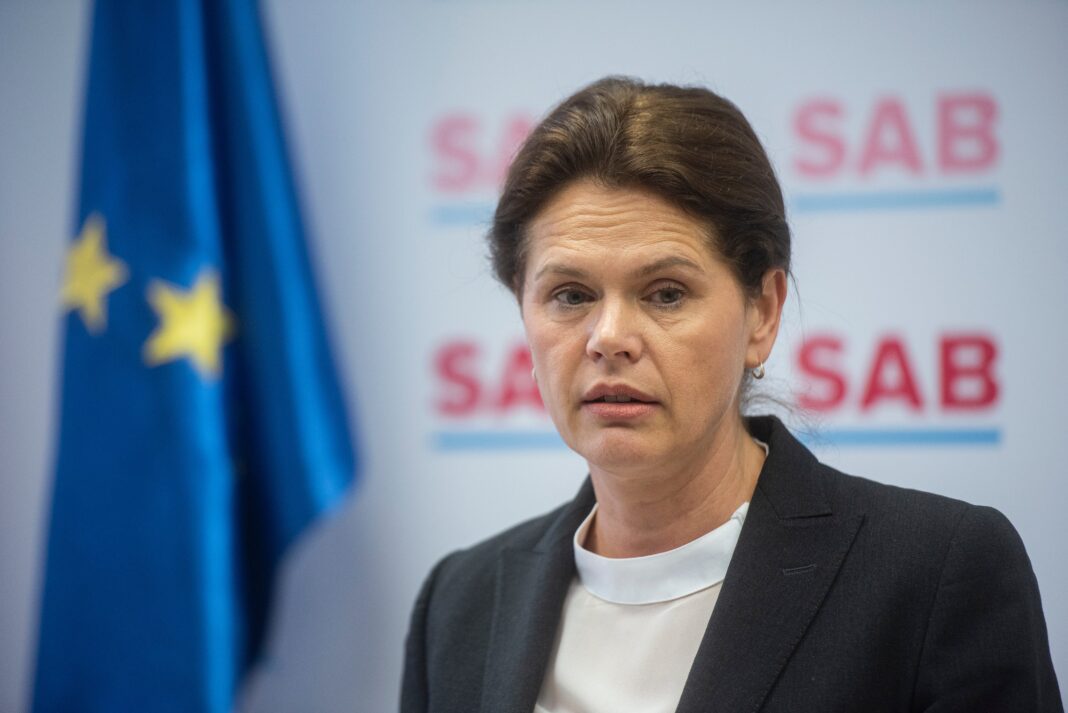By: Sara Bertoncelj / Nova24tv
“It is true, however, that there are certain areas where we did not actually do much – we did practically nothing, and this is the field of healthcare,” was one of the few sincere admissions from the leader of the SAB party, Alenka Bratušek, who has now signed a new agreement on post-election cooperation with the LMŠ, SD, and Levica parties. After a confession like that, should they really be entrusted with a government in the same composition and the healthcare system that they left in a terrible state?
And not only is this true for the government of Marjan Šarec, to which the former Prime Minister was referring – this is also true for the government of Alenka Bratušek, as they also did not do anything in the field of healthcare. In just one year and five months, the health department was headed by as many as four ministers who did almost nothing in healthcare. Former Minister Tomaž Gantar did prepare amendments to the Health Care and Health Insurance Act, with which he intended to provide an additional 100 million euros to the malnourished healthcare sector by equalising the payment of contributions of all insured persons. However, the law then brought only 36 million euros, which was practically the same amount of money that this same government took away from healthcare when it raised VAT. Then there was Minister Alenka Trop Skaza, who only stayed in office for one month. She was replaced by Karl Erjavec, who was already the Minister of Foreign Affairs at the time. Apparently, he already had enough work to do, so he left the position to Bratušek, who, according to the Delo newspaper, did nothing of importance.
Slovenia is below the European average in terms of the number of doctors per thousand inhabitants, and at the same time, we invest significantly less in healthcare than the other European countries we can compare ourselves with. Another result of insufficient investments in infrastructure in recent decades is, of course, the overuse of equipment. The bill on the provision of funds for investments in Slovenian healthcare, presented by the current Minister of Health in June this year, plans to modernise and optimise the Slovenian healthcare system, renovate many facilities, increase the number of hospital beds, reduce the fragmentation of support activities, and running maintenance costs. Namely, 557 million euros is intended for the development and modernisation of general hospitals, as well as nursing hospitals and homes throughout Slovenia, and 214 million euros is intended for special hospitals. At the moment, Minister Janez Poklukar is also tackling the problem of long wait times in healthcare, and the National Institute of Public Health has recently started calling patients from the waitlists; as part of a national tender to improve access to health services in 2021 and 2022, 57 healthcare providers have signed a contract, and some are still expected to do so.
As part of the strategic investments, the government is also planning to construct a psychogeriatric clinic with an emergency room, as well as a research and development centre for mental health with appropriate equipment in the University Psychiatric Clinic in Ljubljana, and new construction at the Vojnik Psychiatric Hospital. Fifty million euros are earmarked for psychiatric hospitals, 26 million euros will be invested in maternity hospitals, 33 million euros are earmarked for the National Laboratory of Health, Environment and Food and the National Institute of Public Health, and 50 million euros for the co-financing the improvement of infrastructure at the primary level. In addition to all of this, 763 million euros are earmarked for both university medical centres. The law also envisages an investment of 200 million euros for scientific and educational institutions for a unified master’s degree in medicine and dental medicine and related pedagogical and scientific research activities and an additional 50 million euros for other scientific and educational institutions in the field of healthcare.
The strategy envisages the use of funds over a period of 10 years, as insufficient investments in healthcare in the past, which is expressed in 85 percent of the infrastructure being overused today, requires medium- and long-term continuous strategic planning that will improve the Slovenian healthcare system. The aim of the new law is primarily to ensure the long-term sustainability of the Slovenian healthcare infrastructure and a sufficient number of suitably qualified staff that will be able to take care of the needs of the ageing Slovenian population.

